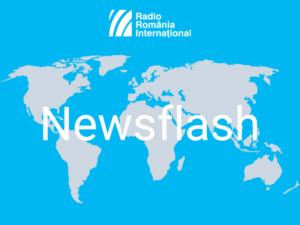NATO – Western countries must be prepared to provide long-term support to Ukraine as Russia shows no signs of relenting, NATO’s secretary general Jens Stoltenberg said. In an interview to the BBC, Stoltenberg said military support would ensure the survival of Ukraine as a sovereign country and force Russia to sit down and negotiate an end to the war. According to Jens Stoltenberg, Russia’s partial mobilisation programme, ordered in September, indicated that Moscow had no desire to end the war, and NATO must make sure that Ukraine stays in a strong position in the event of negotiation talks between the two sides.
UKRAINE – Russia last night carried on attacks on Ukraine using Iranian-made drones, and targeting the capital city in particular. Air raid alerts sounded for several hours, and local authorities say a young man was injured and several buildings damaged. This is the second consecutive night of heavy Russian missile attacks on Kyiv, after the massive one on New Year’s night. Meanwhile, the Ukrainian forces, which destroyed some of the drones, announced having caused substantial casualties among the Russian troops in Bakhmut, a small town in the east of the country which has been seeing heavy fighting for several months now. Apparently 170 Russian troops were killed and at least 200 wounded. Moscow has not yet confirmed the losses, but said its recent attacks targeted buildings where the Ukrainians were reportedly producing drones.
UKRAINE – At least 63 Russian troops were killed in a Ukrainian attack on Makeevka, in the east, the Russian defence ministry announced on Monday, quoted by international media. Gen. Igor Konashenkov, the Russian defence ministry’s spokesman, said „four missiles” hit „a point of temporary deployment” of the Russian army in Makeevka, a town under Russian occupation. Moscow, which very rarely discusses its losses, has never reported such a large number of casualties in one strike since the start of its invasion in Ukraine on February 24 last year. The media had previously released information on the attack in Makeevka, saying it had taken place on New Year’s Eve, and that a building hosting recently mobilised reservists had been affected. The strike was facilitated by the soldiers’ extensive use of mobile phones, which enabled the Ukrainian army to identify their location, Russian sources say.











